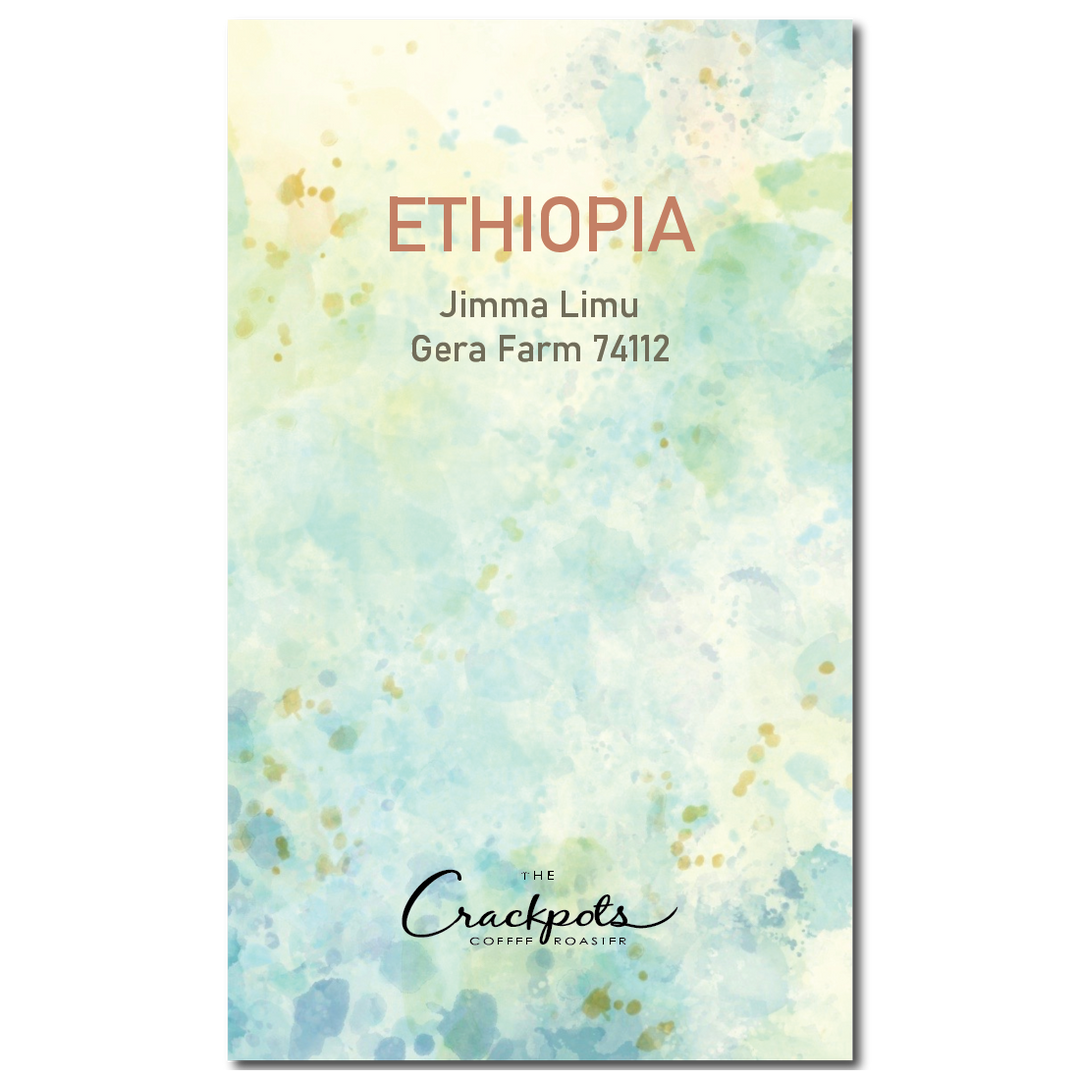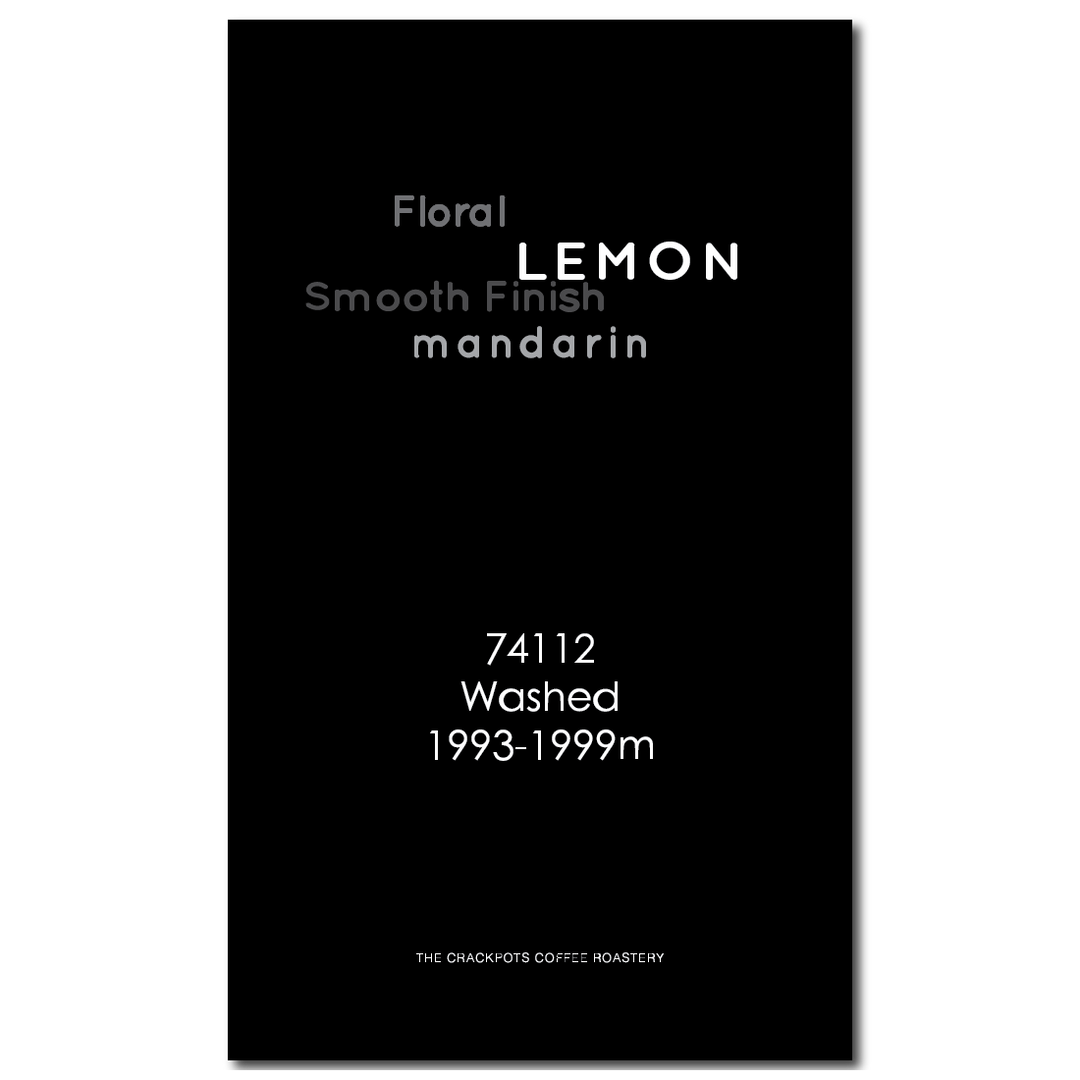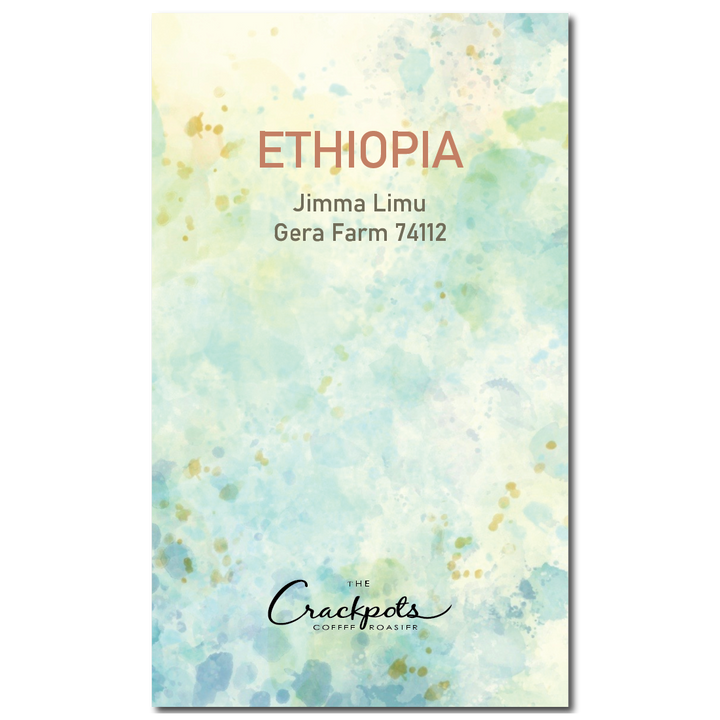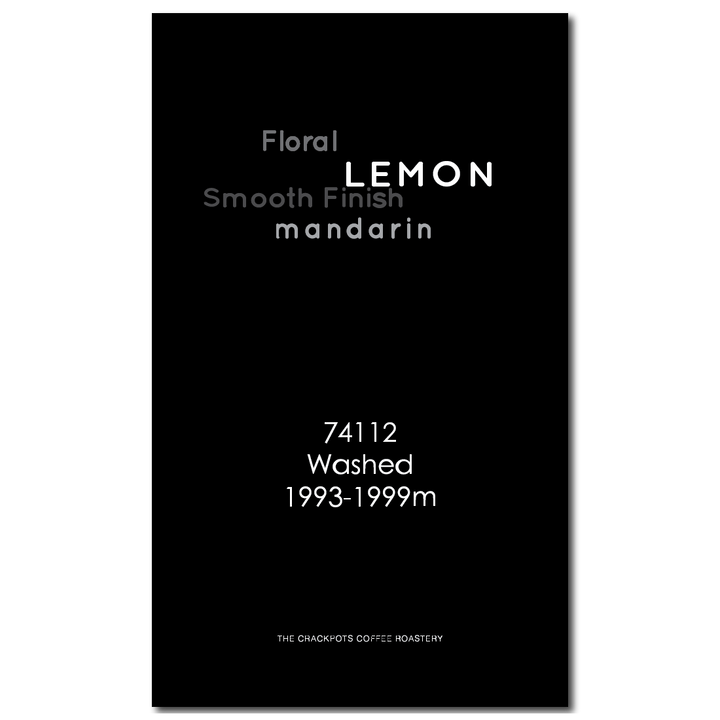Ethiopia Jimma Limu Gera Farm 74112 Washed G1
- Free shipping for orders above RM100 (Malaysian address only)
Tasting Note: Lemon | Mandarin | Floral | Smooth finishing
| Varietal | Processing Method | Altitude |
| 74112 | Washed |
1933 - 1999m |
Size: 200g/ 1kg
Brewing Recommendation: Filter Brews
Named after the former Kingdom of Gera (one of the five ancient Oromo kingdoms of the Gibe region), Gera is now famous for its exquisite honey. While the golden liquid is still an important product of the region, another liquid gold is catching up - specialty coffee.
This lot contains both Gera Estate coffee and freshly picked cherry from 350 local coffee growers. Many of the contributors to this lot farm organically on their own plots of land where coffee trees grow alongside corn, grain, and bananas in the shade of native Birbira, Wanza, and Acacia trees.
The average elevation of the farms in this region is quite high - approximately 1,800-2,000m above sea level - which, combined with the region's cool temperatures, is ideal for slow ripening of coffee cherries, resulting in denser beans and a sweeter, more complex cup profile.
At The Crackpots, we always try to help beginners and advanced drinkers alike to understand more about coffees. One of our efforts is to explain the various cryptic names of coffees which could be confusing.
Here’s a breakdown of this coffee:
Ethiopia
A country in the Horn of Africa. It is said to be where all coffees come from, and coffee production in Ethiopia is a longstanding tradition which dates back dozens of centuries.
Jimma Limu
Named after the former Kingdom of Jimma, Jimma is a zone in Oromia Region of Ethiopia. Limu is located within the Jimma Zone.
Gera Farm
A coffee farm and washing station established in 2008 by Tracon, a large family-owned export business.
74112
A varietal developed in the 1970’s at JARC for resistance to the coffee berry disease, 74112 is from the Metu-Bishari forest and was released in 1979 for disease resistance and yield potential.
Washed G1
Washed means all flesh, mucilage and skins of the coffees are removed mechanically immediately after plucking; they are then washed before drying. This removes any impurities and makes the coffee taste cleaner.
G1 = Grade 1. Ethiopian coffees are graded from 1 to 9. Grade 1-2 are considered specialty grades, Grade 3-9 are considered "commercial".
Grab delivery for addresses within 15km radius of our retail shop.
Standard courier delivery for Malaysian addresses.
International shipping partner is engaged for delivery outside Malaysia (rates vary).








